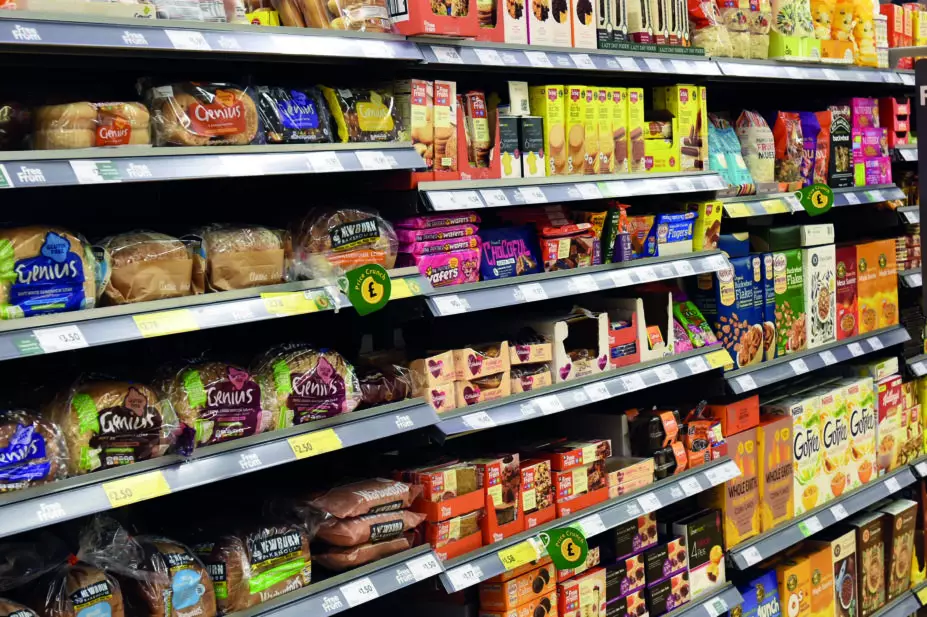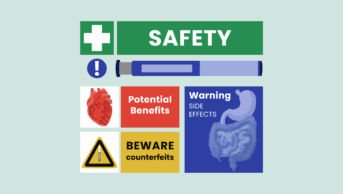
Paula Solloway / Alamy Stock Photo
Pharmacy bodies have advised the Department of Health (DH) against implementing a ‘blanket ban’ on the prescribing of gluten-free foods in primary care.
The 12-week open consultation was launched to consider ending the prescription of all gluten-free foods in primary care, with estimates suggesting this could save £25.7m a year for the health service.
An additional £10m could be saved through patients no longer needing to attend GP appointments to get their gluten-free prescriptions, a spokesperson for the DH said.
Currently, staple gluten-free foods such as bread, flour and pasta are available on prescription to patients diagnosed with gluten sensitivity and have been since the late 1960s.
The government argues that gluten-free foods are now sold in many supermarkets and a wider range of naturally gluten-free food types is also available.
RPS response
But in its official response to the consultation, which ended today (22 June 2017), the Royal Pharmaceutical Society (RPS) said gluten-free food should remain available on prescription for people with coeliac disease and a total ban could have “unintended consequences”.
The society pointed out that replacement of staple foods such as bread and pasta with gluten-free equivalents helps patients stick to a gluten-free diet, avoiding ill health and complications, but said gluten-free cakes and biscuits should not be included.
And having those staple products on prescription helps ensure equal access to those who may not be able to afford the high price of gluten-free foods in supermarkets.
“Removal of access to gluten-free core staples on prescription has a disproportionate impact on the most vulnerable and higher pricing makes them unaffordable for many groups on low or fixed incomes,” the RPS submission to the consultation said.
The RPS said a pharmacy-led prescribing scheme, which included an annual review, would reduce GP workload, be cost effective and improve access to the products for people with coeliac disease.
Plea for prescriptions
The National Pharmacy Association (NPA) also said staple gluten-free foods should remain universally accessible on prescription.
Leyla Hannbeck, chief pharmacist at the NPA, said: “We accept the need to review what gluten-free foods are available, given the pressures on NHS budgets.
“But we believe that essential foods such as bread and pasta must be available on the NHS, as to blacklist these items would worsen health inequalities.”

Source: Courtesy of the National Pharmacy Association (NPA)
The consultation offered three options for consideration: no change to current rules; an end to the prescribing of gluten-free foods in primary care; or to allow only the prescribing of certain gluten-free foods on the NHS.
Coeliac UK said they were fundamentally opposed to the complete removal of access to gluten-free food on prescription as there was a “real risk that short-term savings will result in long-term expense”.
At the moment in England, local decisions on prescribing have led to a postcode lottery, said a Coeliac UK spokesperson, who estimated that around 20% of CCGs have already stopped prescribing gluten-free foods prior to the outcome of the national consultation.
The charity has calculated that the lowest income households’ weekly expenditure on food and non-alcoholic drink may increase by 25% should gluten-free foods on prescription be banned.
Further comments
The Pharmaceutical Services Negotiating Committee (PSNC) said it backs the position of Coeliac UK and said it “favours use of clinical judgement to support patients where necessary and in particular to support vulnerable patients”.
In its response, the PSNC said “we are therefore not explicitly stating that prescriptions for gluten-free foods should be universally available for all patients with coeliac disease but rather the focus is on support for vulnerable patient groups”.
The Company Chemists’ Association (CCA) said it supported the third option listed in the DH consultation, which was to allow only the prescribing of certain foods such as bread and flour, but that the DH needed to work particularly closely with stakeholders and patients groups “to determine the final, most appropriate, list of prescribable foods”.
Several responses pointed to the success of the Scottish Gluten Free Food Service, which was added to the community pharmacy contract in 2015.
Under the scheme patients are allocated ‘units’, which they exchange for gluten-free foods on a monthly basis.
Health minister Lord O’Shaughnessy said: “The NHS is one of the most efficient health services in the world, but we need to do more to ensure we get the best possible value for taxpayers’ money. Changing the way we prescribe gluten-free food could make an important contribution to saving the NHS millions of pounds a year.”
A formal response to the consultation is expected from the DH within three months.


